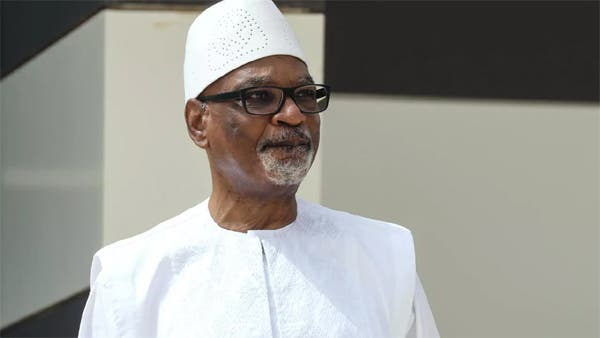The Malian military has ousted President Ibrahim Boubacar Keita, who announced his resignation early Wednesday morning, deepening the crisis in the west African country at the heart of the fight against jihadism in the Sahel.
“If elements of the army felt compelled to intervene to bring an end to this — do I really have a choice?” Mr Keita said in a nationally televised address announcing the dissolution of parliament and his government hours after mutineering soldiers arrested him at gunpoint. “I don’t want a single drop of blood to be shed to keep me in power.”
Mr Keita, widely known as IBK, had been the target of weeks of mass street protests against what critics say has been seven years of corrupt, inept, neglectful rule, before a group of soldiers detained him and other senior government and military officials on Tuesday. The military junta said it planned to set up a transitional government ahead of fresh elections, but the upheaval threatens the stability of a key western ally at the centre of the growing jihadist threat in the western Sahel.
Hours after Mr Keita’s resignation, soldiers calling themselves the National Committee for the Salvation of the People addressed the country, clad in military fatigues.
“We are not holding on to power, but we are holding on to the stability of the country,” said Ismael Wague, the deputy chief of staff of the Air Force. “This will allow us to organise within an agreed reasonable timeframe, general elections to equip Mali with strong institutions, which are able to better manage our everyday lives and restore confidence between the government and the governed.”
The African Union condemned the soldiers’ actions, as did western allies France, the US and the UN — the security council said it would hold an emergency meeting on Wednesday. West African regional bloc ECOWAS announced sanctions that include suspending trade and closing borders to Mali.
On Tuesday, before Mr Keita’s resignation, Mali’s main opposition group M5-RPF suggested to Reuters that it supported the mutiny, which spurred hundreds of people to gather in central Bamako to celebrate. It remains unclear what role Mahmoud Dicko, the Salafist imam who leads the M5-RPF coalition — which has organised weeks of mass protests calling for Mr Keita’s resignation — will play in any transition.
Tuesday’s mutiny echoed a 2012 coup that also began at Kati military base outside Bamako and ended with the resignation of then-president Amadou Toumani Toure. François Conradie, senior political economist at NKC African Economics, pointed out that it took 16 months before Mr Keita was elected following that coup, during which time jihadists captured northern Mali, prompting a French intervention that continues today with 5,000 troops on the ground in the region.
“In the short term there is no reason to expect an improvement in the security situation — to the contrary, the jihadist networks in the north of the country will see a gap to extend their influence while the situation in Bamako is uncertain and the French do not have a civilian interlocutor,” he said in a research note.
One driving factor in public frustration with Mr Keita’s government has been its inability to contain spiralling violence in central and northern Mali that has spread across the region, killing thousands and displacing millions.
France, the former colonial power, has been leading the effort to beat back a diffuse network of extremist groups that have tied up with various ethnic militias to slaughter soldiers and civilians alike.
Arnaud Danjean, a French member of European parliament, wondered how a coup was possible given the daily interaction the EU, UN and France have with Mali’s military, whom they advise, train, equip and support. “That a military coup could happen speaks volumes about the inadequacy in Mali, and not just the local power!” he wrote on Twitter.
Despite criticism among western diplomats for his inept administration, Mr Keita has been a key ally, supportive of the French intervention even as public mood has at times turned against it.
The military junta “was quick to express readiness to work with France, so I don’t think France’s efforts are jeopardised but it will be a challenge . . . to maintain coherence between [ France’s] political (calling for restoration of civilian rule) and military engagement,” wrote Arthur Boutellis, senior adviser at the International Peace Institute.
“Much may depend on how the relationship between the military junta and M5/Dicko develops as well because it is conceivable that the civilian rule that will emerge post-IBK is much less favourable to France’s continued presence,” he added.




